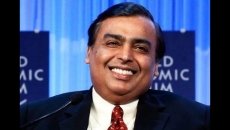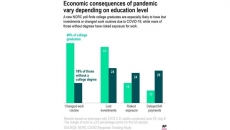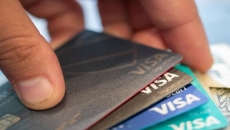Autumn is a time of reflection, with the crisp air engulfing tones of change and thoughtful introspection. As the end of this year approaches, it is the perfect time to fall into savings and prepare for the financial demands of the holiday season and the upcoming new year. With a bit of foresight and strategic planning, you can ease the financial strain that often accompanies the end of the year.
An effective strategy is to start with a budget. Evaluate your current financial situation and anticipate upcoming expenses, such as holiday gifts, travel, and any year-end obligations like taxes or insurance premiums. Creating a detailed budget now allows you to allocate funds for these expenses gradually, reducing the burden when they arise. Also, consider setting up a separate savings account specifically for holiday spending to avoid dipping into your regular savings.
Adopting smart financial habits can also maximize savings during this time. Taimoor Tariq, Financial Planner at TWC Financial, shares, “First, take advantage of seasonal sales to stock up on necessities. Many retailers offer significant discounts during fall sales events, such as Black Friday and Cyber Monday. Review your retirement contributions and make any necessary adjustments before the year ends, capitalizing on tax-advantaged accounts like RRSP, TFSA, and FHSA.”
That said, a common financial mistake people make during the fall is overspending, particularly with the holiday season in sight. It's easy to get caught up in the excitement of holiday shopping, but it's important to stay within your budget. One way to avoid this pitfall is by making a shopping list and sticking to it, which helps prevent unnecessary purchases.
There are also some financial myths that can mislead people during this season. One such myth is that the best deals are always during holiday sales events. In reality, many retailers increase prices just before the holidays to offer discounts that are not actually as significant as they seem. Tariq points out that retailers often use limited-time offers to create a sense of urgency, leading to impulse purchases. Shopping for deals throughout the fall is often more effective, taking advantage of clearance sales on summer items or back-to-school promotions.
Finally, remember that fall is a great time to review and adjust your plan for the upcoming year, no matter how far along you may be on your financial journey. “Another myth is that budgeting is only necessary for those who are financially struggling. Regardless of your financial standing, budgeting is a crucial tool for managing money and achieving long-term financial goals,” shares Tariq.
In terms of longer-term financial investments and savings options, the government of Canada suggests considering the below broader types:
Longer-term investment options
- bonds, such as Canada Savings Bonds
- mutual funds
- index-linked deposits
- stocks
- long-term deposits
- long-term guaranteed investment certificates (GICs)
Longer-term savings options
- Registered Retirement Savings Plans (RRSPs)
- Registered Education Savings Plans (RESPs)
- Registered Disability Savings Plans (RDSPs)
- Tax-Free Savings Accounts (TFSAs)
Whether you're planning to save more, invest, or pay off debt, starting now gives you a head start, ensuring that you enter the new year financially prepared and confident. By implementing these strategies and being mindful of your spending, you can make the most of this season and set yourself up for financial success in the months ahead. Happy savings!








